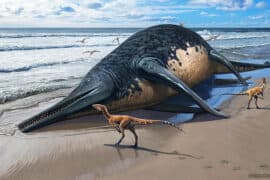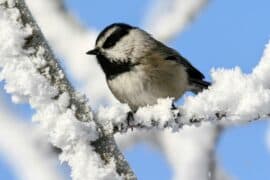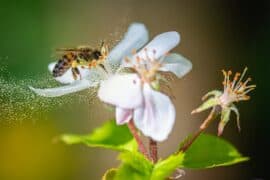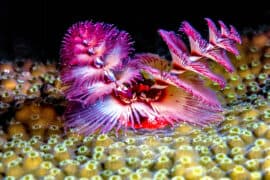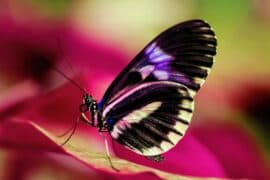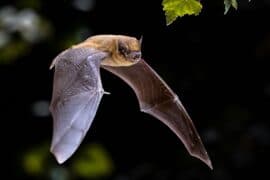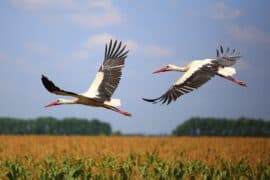Smew
(Mergellus albellus)
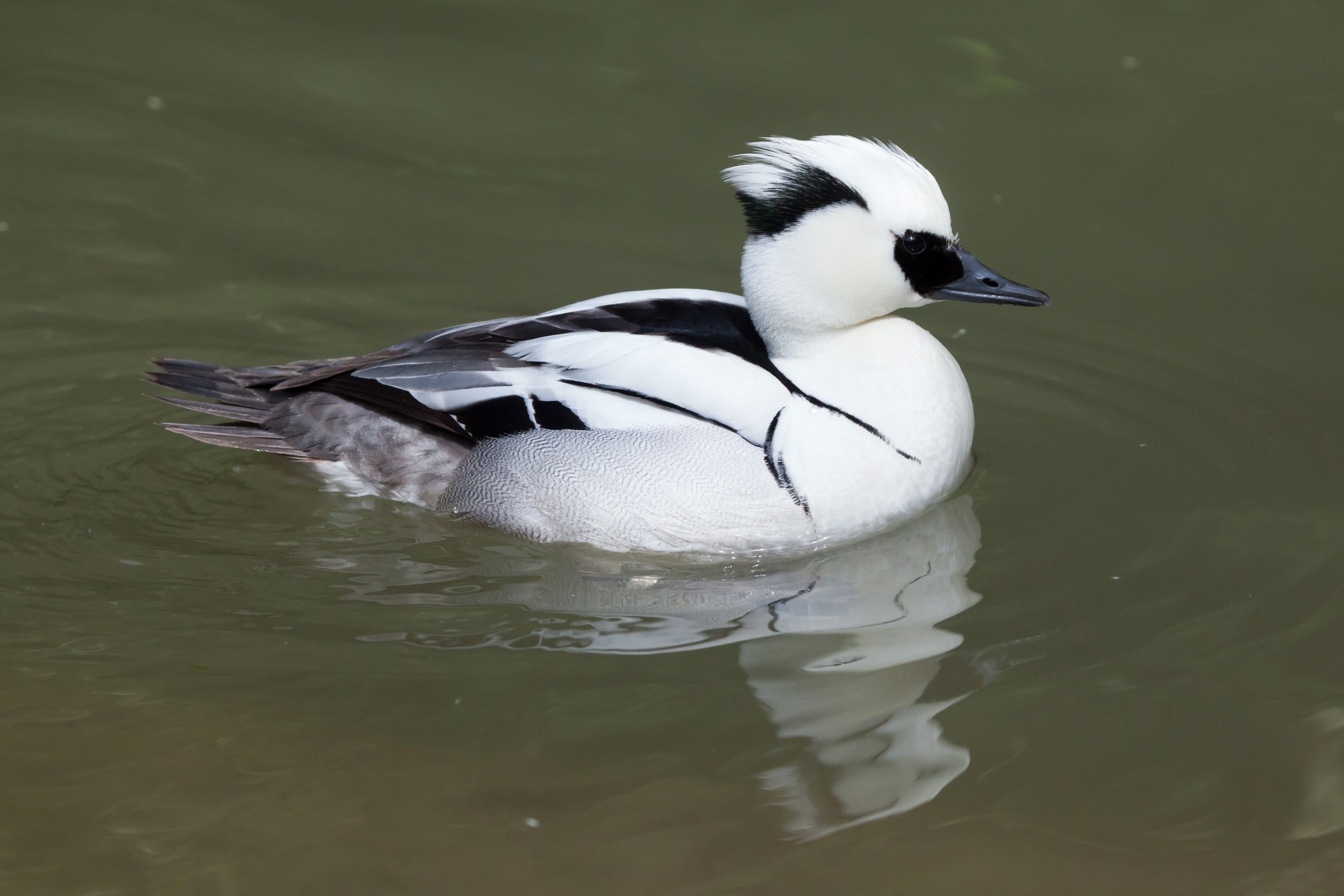
Description
The smew (Mergellus albellus) is a species of duck, and is the only living member of the genus Mergellus. Mergellus is a diminutive of Mergus and albellus is from Latin albus "white". This genus is closely related to Mergus and is sometimes included in it, though it might be closer to the goldeneyes (Bucephala). The smew has hybridized with the common goldeneye (B. clangula). The drake smew, with its 'cracked ice' and 'panda' appearance, is unmistakable, and looks very black-and-white in flight. The females and immature males are grey birds with chestnut foreheads and crowns, and can be confused at a distance with the ruddy duck; they are often known as "redhead" smew. It has oval white wing-patches in flight. The smew's bill has a hooked tip and serrated edges, which help it catch fish when it dives for them. This species breeds in the northern taiga of Europe and the Palearctic. It needs trees for breeding. The smew lives on fish-rich lakes and slow rivers. As a migrant, it leaves its breeding areas and winters on sheltered coasts or inland lakes of the Baltic Sea, the Black Sea, northern Germany and the Low Countries, with a small number reaching Great Britain (for example, at Dungeness), mostly at regular sites. Vagrants have been recorded in North America. On lakes it prefers areas around the edges, often under small trees. The smew breeds in May and lays 7-11 cream-colored eggs, incubated by the female for 26–28 days. Ducklings leave the nest soon after hatching and learn to fly within about 10 weeks. It nests in tree holes, such as old woodpecker nests. It is a shy bird and flushes easily when disturbed. The smew is one of the species to which the Agreement on the Conservation of African-Eurasian Migratory Waterbirds (AEWA) applies. It is not considered threatened on the IUCN Red List, though its population is decreasing.
Taxonomic tree:

